Discover Puliyabaazi Hindi Podcast पुलियाबाज़ी हिन्दी पॉडकास्ट
Puliyabaazi Hindi Podcast पुलियाबाज़ी हिन्दी पॉडकास्ट

Puliyabaazi Hindi Podcast पुलियाबाज़ी हिन्दी पॉडकास्ट
Author: Policy, Politics, Tech, Culture, and more...
Subscribed: 12,728Played: 154,354Subscribe
Share
© Puliyabaazi Hindi Podcast
Description
This Hindi Podcast brings to you in-depth conversations on politics, public policy, technology, philosophy and pretty much everything that is interesting. Presented by tech entrepreneur Saurabh Chandra, public policy researcher Pranay Kotasthane, and writer-cartoonist Khyati Pathak, the show features conversations with experts in a casual yet thoughtful manner.
जब महफ़िल ख़त्म होते-होते दरवाज़े के बाहर, एक पुलिया के ऊपर, हम दुनिया भर की जटिल समस्याओं को हल करने में लग जाते हैं, तो हो जाती है पुलियाबाज़ी। तो आइए, शामिल हो जाइए हमारी पुलियाबाज़ी में जहां हम एक से एक दिलचस्प विषय की तह तक जाएँगे, वो भी आम बोलचाल की भाषा में।
www.puliyabaazi.in
जब महफ़िल ख़त्म होते-होते दरवाज़े के बाहर, एक पुलिया के ऊपर, हम दुनिया भर की जटिल समस्याओं को हल करने में लग जाते हैं, तो हो जाती है पुलियाबाज़ी। तो आइए, शामिल हो जाइए हमारी पुलियाबाज़ी में जहां हम एक से एक दिलचस्प विषय की तह तक जाएँगे, वो भी आम बोलचाल की भाषा में।
www.puliyabaazi.in
315 Episodes
Reverse
इस हफ़्ते पुलियाबाज़ी पर चर्चा पुलियाबाज़ी के बारे में ही। साल का आख़िरी एपिसोड है और अभी अभी पुलियाबाज़ी पत्रिका भी प्रकाशित हुई है, तो इस मौके पर इस पत्रिका की भाषा पर भी थोड़ी चर्चा हो जाये। हिंदी में अक्सर टेक्निकल शब्दों की कमी महसूस होती है, तो अर्थशास्त्र या लोकनीति से जुड़े अटपटे शब्दों के लिए हिंदी में शब्द कैसे खोजे? इसी बात पर आज की पुलियाबाज़ी सुनिए, हमारी नयी पत्रिका पढ़िए, और अगर पसंद तो अपने दोस्तों के साथ भी साझा कीजिये।Order the Magazine Here:We discuss:* Why is it important to discuss new ideas in Hindi?Writing in Hindi* इस संवाद में आप भी जुड़िये* How to translate in Hindi?* Catching the essence* Write it the way you speak it* How will YOU translate these words?* Writing is learning* Taking liberal ideas to Hindi* Invitation to send your essays and photos for Puliyabaazi Magazine* RecommendationsPlease note that Puliyabaazi is now available on Youtube with video.Related Links:We, The Citizens: Strengthening the Indian Republic by Khyati Pathak, Anupam Manur and Pranay Kotasthanehttps://amzn.in/d/91lvJJGRecommendations:Speech | Balraj Sahni’s Convocation Address at Jawaharlal Nehru University, 1972Speech | 1947 - Pt. Jawaharlal Nehru’s Constituent Assembly Speech | Kismat se Baazi | Tryst with Destiny in HindiShort Story | नमक का दारोग़ा | प्रेमचंदBook | Sixth of Humanity by Devesh Kapur and Arvind SubramanianPodcast | The Pakistan Experience by Shehzad Ghias ShaikhPodcast | Pakistonomy by Uzair YounusYoutube | Howtown by Joss Fong and Adam ColeRelated Episodes:भारत, एक भाषा संगम। How have Indian languages evolved? ft. Karthik Venkateshभारतीय भाषाओँ में हमारे अतीत के सुराग़. Clues to our past in Indian languages ft. Peggy Mohanहिंदी-उर्दू : इतिहास और राजनीतिकरण. Hindi Urdu Unity ft. Abhishek AvtansPuliyabaazi Playlist:Thanks for reading पुलियाबाज़ी Puliyabaazi! Subscribe for free to receive new posts and support my work.If you have any questions for the guest or feedback for us, please comment here or write to us at puliyabaazi@gmail.com. If you like our work, please subscribe and share this Puliyabaazi with your friends, family and colleagues.Website: https://puliyabaazi.inHosts: @saurabhchandra @pranaykotas @thescribblebeeTwitter: @puliyabaaziInstagram: https://www.instagram.com/puliyabaazi/Subscribe & listen to the podcast on iTunes, Google Podcasts, Castbox, AudioBoom, YouTube, Spotify or any other podcast app. This is a public episode. If you would like to discuss this with other subscribers or get access to bonus episodes, visit www.puliyabaazi.in
हमारी सरकारी स्कूलों में शिक्षा का हाल ये है की पाँचवी कक्षा में पढ़ रहे बच्चों में से केवल 34% बच्चे ही दूसरी कक्षा की किताब पढ़ पाते हैं। ऐसे में ये सवाल जायज़ है कि क्या हमारे स्कूल बच्चों को वास्तव में सीखा रहे हैं, या सिर्फ सिलेबस पूरा कर रहे हैं? आखिर हमारी सरकारी शिक्षा व्यवस्था इतनी चरमराई हुई क्यों है? आज की पुलियाबाज़ी में हम इस मुद्दे की तह तक जाएँगे यामिनी अय्यर के साथ।We discuss:* Why is education not an election issue* Shift in education policy focus over time* The education reforms in Delhi* Helping the kids who have been left behind in the class* Fixing our curriculum* Teacher accountability* Is our curriculum too ambitious?* Focus on foundational literacy* Government or Aided or Private?* Lessons for State Capacity* Supremacy of CircularsPlease note that Puliyabaazi is now available on Youtube with video.Related Links:Book | Lessons in State Capacity from Delhi’s Schools by Yamini Aiyarhttps://amzn.in/d/bifBLi4Related Episodes:भारत के विकास की चाबी। Accelerating India’s Development with Karthik Muralidharanसिर्फ राजनेताओं ने नहीं, भारतीय जनमानस ने हमारा संविधान पिरोया है। How Public Movements Shaped Indian Constitutionalism? ft. Rohit De and Ornit ShaniPuliyabaazi Playlist:If you have any questions for the guest or feedback for us, please comment here or write to us at puliyabaazi@gmail.com. If you like our work, please subscribe and share this Puliyabaazi with your friends, family and colleagues.Website: https://puliyabaazi.inGuest: @AiyarYaminiHosts: @saurabhchandra @pranaykotas @thescribblebeeTwitter: @puliyabaaziInstagram: https://www.instagram.com/puliyabaazi/Subscribe & listen to the podcast on iTunes, Google Podcasts, Castbox, AudioBoom, YouTube, Spotify or any other podcast app. This is a public episode. If you would like to discuss this with other subscribers or get access to bonus episodes, visit www.puliyabaazi.in
26 नवम्बर 1949 को भारत ने अपना संविधान अपनाया था। इस अहम् घड़ी को याद करने और उस समय हो रहे बदलाव को समझने का ये अच्छा मौका है। इसमें आम धारणा ये है कि संविधान को कुछ गिने-चुने अभिजात वर्ग के लोगों ने बनाया और भारत की आम जनता पर थोप दिया। लेकिन इस धारणा में कितनी सच्चाई है?इतिहासकार रोहित डे और ऑर्नित शनी अपने शोध के आधार पर इस बात का खंडन करते हैं। अपनी किताब Assembling India’s Constitution में वो बताते हैं कि कैसे अलग अलग लोग संविधान बनाने की प्रक्रिया में जुड़ रहे थे और अपनी बात संविधान सभा तक पहुँचा रहे थे। जनमानस में उत्साह इतना था कि ड्राफ्ट संविधान उस समय की बेस्टसेलर किताब बन चुकी थी। तो आईये इस पुलियाबाज़ी पर सुनते हैं संविधान की अनकही दास्ताँ। ये एपिसोड खास इसलिए भी है क्योंकि ये हमारा पहला द्विभाषी एपिसोड है। सुनियेगा ज़रूर।We discuss:* Why do people think that India’s Constitution was an elitist project?* How were the lay people engaged in this process of constitution-making?* Princely states and their engagement with the Constituent Assembly* Popularity of Draft Constitution* Why were the princely states making their own constitutions?* What were the people demanding in their letters?* How were the legislative assemblies engaging with the Constituent Assembly?* The curious case of Manipur* Critique from Madras* The challenge with Delhi’s governance* Some noteworthy contributionsPlease note that Puliyabaazi is now available on Youtube with video.Related Links:Book | Assembling India’s Constitution: A New Democratic History by Rohit De and Ornit ShaniSubstack | India Policy Watch #3: Is the Indian Constitution Elitist? No by Pranay KotasthaneRelated Episodes:क्या भारतीय संविधान विशिष्ट वर्ग के लिए है? Is the Indian Constitution elitist?एक जन संविधान. A People’s Constitution.Puliyabaazi Playlist:Thanks for reading पुलियाबाज़ी Puliyabaazi! Subscribe for free to receive new posts and support my work.If you have any questions for the guest or feedback for us, please comment here or write to us at puliyabaazi@gmail.com. If you like our work, please subscribe and share this Puliyabaazi with your friends, family and colleagues.Website: https://puliyabaazi.inGuest: @itihaasnaama @OrnitShaniHosts: @saurabhchandra @pranaykotas @thescribblebeeTwitter: @puliyabaaziInstagram: https://www.instagram.com/puliyabaazi/Subscribe & listen to the podcast on iTunes, Google Podcasts, Castbox, AudioBoom, YouTube, Spotify or any other podcast app. This is a public episode. If you would like to discuss this with other subscribers or get access to bonus episodes, visit www.puliyabaazi.in
भारत एक ऐसा देश है जहाँ हर थोड़ी दूर पर भाषा बदल जाती है, खाना बदल जाता है और पहनावा बदल जाता है। हम नक़्शे पर तो एक हैं, लेकिन क्या हम दिलों से भी एक हैं? आज हम बात करेंगे एक ऐसे सवाल की जो आज़ादी के वक़्त भी था और आज भी हमारे सामने खड़ा है: भारत का भावनात्मक एकीकरण कैसे हो?इस मुद्दे को पहली बार 1961 में गठित एक कमिटी ने समझने की कोशिश की थी और अपने संशोधन और सुझाव उन्होंने Report of the Committee on Emotional Integration में पेश किये थे। आज की पुलियाबाज़ी में इसी रिपोर्ट पर एक चर्चा।We discuss:* Committee on Emotional Integration* Unity is not Uniformity* Hindrance to Integrity* Education as an instrument for unity* Languages and scripts* Language hegemony* A note of dissentFact Check: 01:42 Churchill did not specifically predict a 15 year expiration date on India. However, he did predict that united India would not survive without the British Empire.Related Links:Report of the Committee on Emotional Integrationhttps://archive.org/details/dli.csl.2029/mode/2upSubstack | Anticipating the Unintended: The Emotional Integration of India by Pranay Kotasthanehttps://publicpolicy.substack.com/i/178977404/india-policy-watch-the-emotional-integration-of-indiaPlease note that Puliyabaazi is now available on Youtube with video.Related Episodes:भारत की विकास यात्रा उल्टी-पुल्टी क्यों? India’s Precocious Development Odyssey ft. Devesh Kapur and Arvind Subramanianएक देश, कईं भाषाएँ, एक लिपि। Many Languages, One Script.Puliyabaazi Playlist:Thanks for reading पुलियाबाज़ी Puliyabaazi! Subscribe for free to receive new posts and support my work.If you have any questions for the guest or feedback for us, please comment here or write to us at puliyabaazi@gmail.com. If you like our work, please subscribe and share this Puliyabaazi with your friends, family and colleagues.Website: https://puliyabaazi.inHosts: @saurabhchandra @pranaykotas @thescribblebeeTwitter: @puliyabaaziInstagram: https://www.instagram.com/puliyabaazi/Subscribe & listen to the podcast on iTunes, Google Podcasts, Castbox, AudioBoom, YouTube, Spotify or any other podcast app. This is a public episode. If you would like to discuss this with other subscribers or get access to bonus episodes, visit www.puliyabaazi.in
पिछले हफ़्ते हमने बात की थी कि कैसे टेक्नोलॉजी और इनोवेशन की बदौलत कुछ देश लंबे समय तक आर्थिक प्रगति कर पाये। लेकिन, आर्थिक विकास का होना हमेशा तय नहीं होता। २०वीं सदी की शुरुआत में अर्जेंटीना तेज़ी से बढ़ रहा था, लेकिन बाद में उसके विकास का चक्का अटक सा गया। तो आइये, आज की पुलियाबाज़ी में अर्जेंटीना के आर्थिक पतन से कुछ सबक सीखते हैं।We discuss:* Background on Argentina* Economic Growth in Argentina* Colonialism: Latin America vs North America* When Argentina was an Economic Powerhouse* When did Argentina’s slide begin?* Penetration of Democracy* Extractive vs Inclusive Institution* Balance between the State and SocietyPlease note that Puliyabaazi is now available on Youtube with video.Related Links:Book | Why Nations Fail? By Daron Acemoğlu and James A. Robinsonhttps://www.goodreads.com/book/show/12158480-why-nations-failRelated Episodes:आर्थिक वृद्धि की नोबेल विजेता रेसिपी क्या? The Secret Ingredient for Sustained Economic Growthइंदिरा, आपातकाल और उभरता कैसरवाद। The Indira Era ft. Srinath RaghavanPuliyabaazi Playlist:If you have any questions for the guest or feedback for us, please comment here or write to us at puliyabaazi@gmail.com. If you like our work, please subscribe and share this Puliyabaazi with your friends, family and colleagues.Thanks for reading पुलियाबाज़ी Puliyabaazi! Subscribe for free to receive new posts and support our work.Website: https://puliyabaazi.inHosts: @saurabhchandra @pranaykotas @thescribblebeeTwitter: @puliyabaaziInstagram: https://www.instagram.com/puliyabaazi/Subscribe & listen to the podcast on iTunes, Google Podcasts, Castbox, AudioBoom, YouTube, Spotify or any other podcast app. This is a public episode. If you would like to discuss this with other subscribers or get access to bonus episodes, visit www.puliyabaazi.in
2025 में इमरजेंसी के 50 साल पूरे हुए, तो हमने सोचा क्यों न भारत के लोकतंत्र के इस काले प्रकरण पर भी कुछ रोशनी डाली जाये? इस बात पर विस्तार से चर्चा करने किए लिए हमारे साथ जुड़ते हैं जाने माने इतिहासकार श्रीनाथ राघवन जी। तो ये पुलियाबाज़ी सुनिए और अपने सवाल या टीका-टिप्पणी हमसे साझा कीजिये।We discuss:* Crisis in India in the late 60s* What is Caesarism?* Indira Gandhi’s Leadership* The flip-flops on economic policy* Impact of international events* Political reasons behind the policymaking* Why did we miss out on the East Asian rally?* Factors that led to the Emergency* Repealing the 42nd Amendment* Re-election despite the atrocitiesPlease note that Puliyabaazi is now available on Youtube with video.Related Links:Book | Indira Gandhi and the Years That Transformed India by Srinath RaghavanRelated Episodes:भारत की विकास यात्रा उल्टी-पुल्टी क्यों? India’s Precocious Development Odyssey ft. Devesh Kapur and Arvind Subramanianअटल बिहारी वाजपेयी: कवि, प्रचारक, राजनीतिज्ञ। Biography of Atal Bihari Vajpayee ft. Abhishek ChoudharyPuliyabaazi Playlist:Thanks for reading पुलियाबाज़ी Puliyabaazi! Subscribe for free to receive new posts and support my work.If you have any questions for the guest or feedback for us, please comment here or write to us at puliyabaazi@gmail.com. If you like our work, please subscribe and share this Puliyabaazi with your friends, family and colleagues.Website: https://puliyabaazi.inHosts: @saurabhchandra @pranaykotas @thescribblebeeTwitter: @puliyabaaziInstagram: https://www.instagram.com/puliyabaazi/Subscribe & listen to the podcast on iTunes, Google Podcasts, Castbox, AudioBoom, YouTube, Spotify or any other podcast app. This is a public episode. If you would like to discuss this with other subscribers or get access to bonus episodes, visit www.puliyabaazi.in
लंबे समय तक निरंतर विकास का नुस्खा क्या है? किन परिस्थितियों में इनोवेशन से प्रेरित विकास फलता-फूलता है? ऐसा क्यों है कि कुछ देश इसे हासिल कर पाते हैं, जबकि दूसरे असफल रह जाते हैं? इस हफ्त पुलियाबाज़ी पर हम ‘रचनात्मक विनाश’ की तर्ज पर दिए गए अर्थशास्त्र के नोबेल पुरस्कार के संदर्भ में इन्हीं विषयों पर चर्चा करेंगे।We discuss:* What is Aghion and Howitt’s model for growth?* Joel Mokyr’s contribution* Factors for Sustained Economic Growth* Why did India miss out?* Acceptance of change* Economic growth is not to be taken for grantedPlease note that Puliyabaazi is now available on Youtube with video.Related Links:About the Nobel Prize in EconomicsRelated Episodes:माहौल की महिमा। Why Narratives Matter?भारत की विकास यात्रा उल्टी-पुल्टी क्यों? India’s Precocious Development Odyssey ft. Devesh Kapur and Arvind SubramanianPuliyabaazi Playlist:If you have any questions for the guest or feedback for us, please comment here or write to us at puliyabaazi@gmail.com. If you like our work, please subscribe and share this Puliyabaazi with your friends, family and colleagues.Thanks for reading पुलियाबाज़ी Puliyabaazi! This post is public so feel free to share it.Website: https://puliyabaazi.inHosts: @saurabhchandra @pranaykotas @thescribblebeeTwitter: @puliyabaaziInstagram: https://www.instagram.com/puliyabaazi/Subscribe & listen to the podcast on iTunes, Google Podcasts, Castbox, AudioBoom, YouTube, Spotify or any other podcast app. This is a public episode. If you would like to discuss this with other subscribers or get access to bonus episodes, visit www.puliyabaazi.in
इस हफ़्ते पुलियाबाज़ी पर एक शानदार चर्चा दो बहुत ही ख़ास मेहमान के साथ। पुलिया पर हमारे साथ जुड़ रहे है प्रसिद्ध पोलिटिकल साइंटिस्ट प्रोफ़ेसर देवेश कपूर और भारत के चीफ़ इकोनॉमिक एडवाइज़र रह चुके अर्थशास्त्री अरविंद सुब्रमनियन। चर्चा है आज़ाद भारत की विकास यात्रा पर—किन चीज़ों में हम सफल रहे? क्या गलतियाँ हुई? इन्हें कैसे ठीक करें ताकि आगे हमारी प्रगति की राह बनी रहे? इन सभी सवालों पर खुलकर बातचीत।We discuss:* India’s precocious development journey* Elite Democracy and Caste* The negative effects of leapfrogging* Jobless growth* The Socialism of Public Sector in India* 1950-1980s: The myth of Import Substitution* 1990s Onwards: The Kamdhenu State* Nations are fragile* How do other countries address inequality?* Handling disagreements amongst co-authorsPlease note that Puliyabaazi is now available on Youtube with video.Related Links:Book | A Sixth Of Humanity: Independent India’s Development Odyssey by Devesh Kapur and Arvind SubramanianRelated Episodes:आंतरिक सुरक्षा: हालचाल ठीक-ठाक है? Internal Security in India ft. Devesh Kapur & Amit Ahujaआर्थिक सुधारों की कहानी मोंटेक सिंह अहलूवालिया की ज़ुबानी। Backstage with Montek Singh AhluwaliaPuliyabaazi Playlist:If you have any questions for the guest or feedback for us, please comment here or write to us at puliyabaazi@gmail.com. If you like our work, please subscribe and share this Puliyabaazi with your friends, family and colleagues.Thanks for reading पुलियाबाज़ी Puliyabaazi! Subscribe for free to receive new posts and support my work.Website: https://puliyabaazi.inGuests: @arvindsubramanHosts: @saurabhchandra @pranaykotas @thescribblebeeTwitter: @puliyabaaziInstagram: https://www.instagram.com/puliyabaazi/Subscribe & listen to the podcast on iTunes, Google Podcasts, Castbox, AudioBoom, YouTube, Spotify or any other podcast app. This is a public episode. If you would like to discuss this with other subscribers or get access to bonus episodes, visit www.puliyabaazi.in
व्यापार टैरिफ को लेकर अमेरिका और चीन के बीच गहमा गहमी जारी है। इसी बीच अमरीका ने भारत से आने वाले सामान पर 50% टैरिफ लगा दिया। चीन ने तो पहले से ही भारत पर कई महत्वपूर्ण उत्पादों पर एक्सपोर्ट बैन लगाया हुआ था। तो इस खेल में भारत क्या पत्ते खेल सकता है? किन मुद्दों पर भारत अपनी बड़ी मार्केट के बल पर नेगोशिएट कर सकता है? इसी पर आज की पुलियाबाज़ी।We discuss:* India as a Swing Power?* Opportunity for reforms* Taking a measured stance* Shifting focus to EU and other countries* What cards can India play?Also, please note that Puliyabaazi is now available on Youtube with video.Related Articles:Article | Indian economic strategy in the new globalisation by Ajay Shah and Vijay KelkarWall Street Journal | China’s Exports Rise at Fastest Pace in Six Months Despite U.S. TariffsRelated Episodes:कपड़े के निर्यात में क्यों पिछड़ गया भारत? How Pro-Business Protectionism is hurting Indian Women?China Blocking Exports to India | China’s Economic Warfare is a Market Failure | चीन का चक्रव्यूहPuliyabaazi Playlist:If you have any questions for the guest or feedback for us, please comment here or write to us at puliyabaazi@gmail.com. If you like our work, please subscribe and share this Puliyabaazi with your friends, family and colleagues.Website: https://puliyabaazi.inHosts: @saurabhchandra @pranaykotas @thescribblebeeTwitter: @puliyabaaziInstagram: https://www.instagram.com/puliyabaazi/Subscribe & listen to the podcast on iTunes, Google Podcasts, Castbox, AudioBoom, YouTube, Spotify or any other podcast app. This is a public episode. If you would like to discuss this with other subscribers or get access to bonus episodes, visit www.puliyabaazi.in
इस हफ़्ते पुलियाबाज़ी टीम जगभ्रमण पर निकली थी तो हमने सोचा की श्रोताओं को इस सफ़र का ब्यौरा देना तो बनता है। तो पेश है और एक सफ़रनामा अय्याशी की नगरी लास वेगस और कनाडा की राजधानी ओटावा का।We discuss:* Sincity Las Vegas* How Vegas was built* Entertainment at Industrial Scale* Trade Exhibition* Canada’s dependence on the US* Notes from OttawaAlso, please note that Puliyabaazi is now available on Youtube with video.Related Episodes:सफ़रनामा: अमरीका से थाईलैंड से केन्या तक। Travelogue from US, Thailand, Kenyaसफ़रनामा: मेम्फिस से शारजाह से वियतनाम तक। Travelogue: Memphis, Sharjah, VietnamPuliyabaazi Playlist:If you have any questions for the guest or feedback for us, please comment here or write to us at puliyabaazi@gmail.com. If you like our work, please subscribe and share this Puliyabaazi with your friends, family and colleagues.Website: https://puliyabaazi.inHosts: @saurabhchandra @pranaykotas @thescribblebeeTwitter: @puliyabaaziInstagram: https://www.instagram.com/puliyabaazi/Subscribe & listen to the podcast on iTunes, Google Podcasts, Castbox, AudioBoom, YouTube, Spotify or any other podcast app. This is a public episode. If you would like to discuss this with other subscribers or get access to bonus episodes, visit www.puliyabaazi.in
न्याय व्यवस्था लोकनीति का एक ऐसा पहलु है जिसके लिए हम सभी पूरी तरह से सरकारी तंत्र पर निर्भर हैं। भला इसमें मार्केट कैसे हो सकता है? वैसे मोटे तौर पर ये बात सही है लेकिन कुछ प्रकार के झगड़े सरकारी न्याय तंत्र के बाहर भी सुलझाए जाते हैं। इसे कहते हैं आर्बिट्रेशन याने कि मध्यस्थता। इसी विषय को विस्तार से समझेंगे ट्रस्टब्रिज से जुड़े लीगल एक्सपर्ट प्रशांत नारंग के साथ।We discuss:* What is Arbitration?* Types of disputes that qualify for Arbitration* Framework for Arbitration in India* Adhoc vs Institutional Arbitration* Under the shadow of High Courts* A Market for Law and Order* Approach of Govt Organisations* Reforms to improve the processAlso, please note that Puliyabaazi is now available on Youtube with video.Related Links:Live Mint | The resolution of disputes over public procurement: Let’s strengthen reforms by Prashant NarangMoneycontrol | The Arbitration Retreat: A short-sighted policy move? by Prashant NarangMoneycontrol | Solutions to invigorate India’s lacklustre arbitration system by Prashant NarangRelated Episodes:हमारी क़ानून व्यवस्था का रिपोर्ट कार्ड. The State of Law & Order Machinery in India.पकोड़ानॉमिक्स : फेरीवालों की व्यथा. Street Vending in India.Puliyabaazi Playlist:If you have any questions for the guest or feedback for us, please comment here or write to us at puliyabaazi@gmail.com. If you like our work, please subscribe and share this Puliyabaazi with your friends, family and colleagues.Website: https://puliyabaazi.inGuest: @law_Et_alHosts: @saurabhchandra @pranaykotas @thescribblebeeTwitter: @puliyabaaziInstagram: https://www.instagram.com/puliyabaazi/Subscribe & listen to the podcast on iTunes, Google Podcasts, Castbox, AudioBoom, YouTube, Spotify or any other podcast app. This is a public episode. If you would like to discuss this with other subscribers or get access to bonus episodes, visit www.puliyabaazi.in
इस हफ़्ते पुलियाबाज़ी पर हमने क्लास लगायी भारत की परमाणु हथियार बनाने के सफ़र पर। भारत के परमाणु प्रोग्राम की शुरुआत से लेकर पहली नुक्लिअर सबमरीन बनने तक की कहानी और उसके पीछे की राजनीति और विज्ञान, इन सब को विस्तार में समझाते है प्रोफ़ेसर योगेश जोशी।We discuss:* The beginning of India’s nuclear programme* What was the initial goal of India’s nuclear programme?* The pivot to Nuclear Weapons* Cost of Pursuit vs Cost of Restraint* Nuclear Diplomacy* The threat from Pakistan* How Pakistan got Nuclear Weapons* How India got its first Submarine* Organizational struggle: Naval Engineers vs Nuclear ScientistsAlso, please note that Puliyabaazi is now available on Youtube with video.Related Links:Yogesh’s Google Scholar PageNucleus and Nation: Scientists, International Networks, and Power in IndiaThanks for reading पुलियाबाज़ी Puliyabaazi! If you have enjoyed listening to this podcast, please share it with others.Related Episodes:Nuclear Deterrence Strategy. परमाणु युद्ध के खतरे को कैसे घटायें? ft. Dr. Manpreet Sethiभारतीय सेनाएँ ताल से ताल कैसे मिलाएँ? Jointness in India’s Armed Forces.Puliyabaazi Playlist:If you have any questions for the guest or feedback for us, please comment here or write to us at puliyabaazi@gmail.com. If you like our work, please subscribe and share this Puliyabaazi with your friends, family and colleagues.Website: https://puliyabaazi.inGuest: @the_nuclearyogiHosts: @saurabhchandra @pranaykotas @thescribblebeeTwitter: @puliyabaaziInstagram: https://www.instagram.com/puliyabaazi/Subscribe & listen to the podcast on iTunes, Google Podcasts, Castbox, AudioBoom, YouTube, Spotify or any other podcast app. This is a public episode. If you would like to discuss this with other subscribers or get access to bonus episodes, visit www.puliyabaazi.in
पुलियाबाज़ी का एपिसोड नंबर 300 हाज़िर है। ये हमारे लिए ख़ास मक़ाम है और शायद ये आप सब की हौसला अफ़ज़ाई के बिना मुमकिन नहीं होता था। इसी लिए आज चर्चा आपके सवालों पर। हमें अपने सवाल भेजने के लिए श्रोताओं का शुक्रिया। कुछ के जवाब हमने दिए है, बाकी के हम अगले एपिसोड्स में डिसकस करेंगे। वैसे अगर आप हमसे पूछे तो हम तो यही कहेंगे कि अभी तो बस शुरुआत है।Prebook your complimentary copy of Puliyabaazi Magazine here:https://forms.gle/VmWHpzPMWjiDQ9c89A shout out to our backstage team who helps us bring our conversations to you:Audio Editing: Vijay DoiphodeVideo Editing: Jayesh YadavSubstack Editing: Parikshit SuryavanshiWe discuss:* Increasing Polarisation in Society* How should urban bodies be elected and organised?* How to improve civic sense?* Developing a Civic Identity?* Puliyabaazi: A Print Magazine* Is Vikasit Bharat 2047 possible?* The appeal of Marxism in India* Limits on Governments* Our ProcessAlso, please note that Puliyabaazi is now available on Youtube with video.Open Resources on Public Policy:https://opentakshashila.net/Read the Puliyabaazi Story Here:हर मक़ाम एक नयी शुरुआत। Every Milestone Is a New BeginningRelated Episodes:Episode 1: यह AI AI क्या है ? What can AI really accomplish?विकसित भारत के लिए टॉप10 उपाय। 10-Point Road Map for a Developed IndiaTopic-wise Playlist: hereIf you have any questions for the guest or feedback for us, please comment here or write to us at puliyabaazi@gmail.com. If you like our work, please subscribe and share this Puliyabaazi with your friends, family and colleagues.Website: https://puliyabaazi.inHosts: @saurabhchandra @pranaykotas @thescribblebeeTwitter: @puliyabaaziInstagram: https://www.instagram.com/puliyabaazi/Subscribe & listen to the podcast on iTunes, Google Podcasts, Castbox, AudioBoom, YouTube, Spotify or any other podcast app. This is a public episode. If you would like to discuss this with other subscribers or get access to bonus episodes, visit www.puliyabaazi.in
Atal Bihari Vajpayee was a much loved and adored Prime Minister. As a politician who was also a poet and a great orator, he is often seen as a moderate or even liberal leader. But his legacy is more complicated than meets the eye. He often straddled uncomfortably between secular India and its sectarian polity. Today, Vajpayee’s biographer Abhishek Choudhary joins us on Puliyabaazi to discuss the many facets of his life and his politics.अटल बिहारी वाजपेयी एक लोकप्रिय राजनेता होने के साथ-साथ एक कवि और बेहतरीन वक्ता भी थे, और उन्हें अक्सर एक उदारवादी प्रधानमंत्री के रूप में देखा जाता है। लेकिन उनकी विरासत जितनी दिखती है, उससे कहीं ज़्यादा जटिल है। वे अक्सर धर्मनिरपेक्ष भारत और उसकी संकीर्ण राजनीति के बीच असहजता से जूझते रहे। आज, पुलियाबाज़ी में हमारे साथ जुड़ रहे हैं वाजपेयी के जीवनीकार अभिषेक चौधरी जिन्होंने उनके जीवन और उनकी राजनीति का बारीकी से अध्यन किया है। तो आइये, आप भी शामिल हो जाइये इस ज़बरदस्त चर्चा में।We discuss:* The Legacy of Vajpayee* Approach for the Biography* Researching for the book* The Confusing 80s* Evolution or Doublespeak?* Prime Ministership* Parallels between Vajpayee and Modi* Policies during Vajpayee years* Personal LifeAlso, please note that Puliyabaazi is now available on Youtube with video.Related Links:Book1: Vajpayee: The Ascent of the Hindu Right, 1924–1977Book2: Believer's Dilemma: Vajpayee and the Hindu Right's Path to Power, 1977–2018If you have enjoyed this podcast, please help is spread the word. Share it with others!Related Episodes:राजनैतिक ध्रुवीकरण। The Politics of Polarisation ft. Gaurav Soodविकसित भारत के लिए टॉप10 उपाय। 10-Point Road Map for a Developed IndiaPuliyabaazi Playlist:If you have any questions for the guest or feedback for us, please comment here or write to us at puliyabaazi@gmail.com. If you like our work, please subscribe and share this Puliyabaazi with your friends, family and colleagues.Website: https://puliyabaazi.inGuest:@chacchachoudhryHosts: @saurabhchandra @pranaykotas @thescribblebeeTwitter: @puliyabaaziInstagram: https://www.instagram.com/puliyabaazi/Subscribe & listen to the podcast on iTunes, Google Podcasts, Castbox, AudioBoom, YouTube, Spotify or any other podcast app. This is a public episode. If you would like to discuss this with other subscribers or get access to bonus episodes, visit www.puliyabaazi.in
पुलियाबाज़ी में अक्सर इस बात का ज़िक्र हुआ है कि हमारे शहरों में पैदल चलना कितना मुश्किल हो गया है, और हम सब अपने आम जीवन में भी इसको महसूस तो करते ही हैं। इसीलिए, आज हमारे मेहमान हैं Walking Project के कन्वीनर ऋषि अग्गरवाल जी जो इस मुद्दे पर लंबे समय से काम कर रहे है और लोगों एवं नगरपालिका अधिकारीयों में इस विषय पर जागृति बढ़ाने का काम कर रहे हैं।We discuss:* Why is the walkability of our cities so poor?* Factors that affect walkability* Parking Policies* Footpaths with railings* What is the Indian Road Congress?* How to measure walkability?* How to affect change?* Lessons from other countries* Going Underground?* Pedestrian Manifesto* What can Citizens do?Also, please note that Puliyabaazi is now available on Youtube with video.Related Links:About Walking ProjectRead: Pedestrian ManifestoWatch: Webinar on Singapore Hawkers by Walking Project If you enjoyed listening to this Puliyabaazi, please remember to share it with others. Related Episodes:पार्किंग नीतियों को बेहतर कैसे बनाया जाए? Lessons from a Parking Policy Reform#57 पकोड़ानॉमिक्स: फेरीवालों की व्यथा. Street Vending in India ft. Prashant NarangCheck Puliyabaazi Playlist hereRead Hindi Articles on our TippaNi section: hereIf you have any questions for the guest or feedback for us, please comment here or write to us at puliyabaazi@gmail.com. If you like our work, please subscribe and share this Puliyabaazi with your friends, family and colleagues.Website: https://puliyabaazi.inHosts: @saurabhchandra @pranaykotas @thescribblebeeTwitter: @puliyabaaziInstagram: https://www.instagram.com/puliyabaazi/Subscribe & listen to the podcast on iTunes, Google Podcasts, Castbox, AudioBoom, YouTube, Spotify or any other podcast app. This is a public episode. If you would like to discuss this with other subscribers or get access to bonus episodes, visit www.puliyabaazi.in
क्या आपको पता है कि भारत में तकरीबन ६ करोड़ आवारा कुत्तें हैं और हर साल १ करोड़ ७० लाख लोगों को कुत्तें काटते हैं? इस विषय पर वैसे तो काफ़ी चर्चा हो चुकी है पर ज़्यादातर लोग इस मुद्दे को नैतिकता की दृष्टि से देखते हैं, तो पुलियाबाज़ी पर हमने इसे लोकनीति के नज़रिये से समझने की कोशिश की।We discuss:* Supreme Court’s verdict on strays* What are the existing laws?* Should this decision be made at the Union level?* ABC Rules 2023 and Community Dogs* Is it a question of morality?* Who bears the cost of this policy?* Strengthening the Local BodiesAlso, please note that Puliyabaazi is now available on Youtube with video.Related Links:Article | Opinion: What Explains India’s Privileged Treatment of Street Dogs? By Ryan LoboResearch Paper | ‘Stray appetites’: a socio-ecological analysis of free-ranging dogs living alongside human communities in Bangalore, India by Shireen Jagriti Bhalla, Roy Kemmers, Ana Vasques & Abi Tamim Vanak Article | आवारा कुत्तों की समस्या: दया और दुलार से बढ़कर ज़िम्मेदार पशु प्रेम की ज़रूरत by Khyati PathakDogs vs wolves: A Shift in Maharashtra's Apex PredatorsThanks for reading पुलियाबाज़ी Puliyabaazi! This post is public so feel free to share it.Related Episodes:सड़कों को सुरक्षित और सुगम कैसे बनाएं? Improving Road Safety ft. Rahul Goel, IIT-Delhiविकसित भारत के लिए टॉप10 उपाय। 10-Point Road Map for a Developed IndiaPuliyabaazi Playlist:If you have any questions for the guest or feedback for us, please comment here or write to us at puliyabaazi@gmail.com. If you like our work, please subscribe and share this Puliyabaazi with your friends, family and colleagues.Website: https://puliyabaazi.inHosts: @saurabhchandra @pranaykotas @thescribblebeeTwitter: @puliyabaaziInstagram: https://www.instagram.com/puliyabaazi/Subscribe & listen to the podcast on iTunes, Google Podcasts, Castbox, AudioBoom, YouTube, Spotify or any other podcast app. This is a public episode. If you would like to discuss this with other subscribers or get access to bonus episodes, visit www.puliyabaazi.in
उक्रैन और रूस की जंग में यूक्रेन ड्रोन जैसे नए और अनोखे हथियारों से रूस की पारम्परिक सैन्य शक्ति को बख़ूबी टक्कर दे रहा है। इससे तो ऐसा ही लगता है कि भविष्य की सेनाएँ और रणभूमि आज से बहुत अलग होने वाली है। युद्ध के इस बदलते स्वरुप पर चर्चा के लिए हमारे साथ जुड़ते हैं आदित्य रामनाथन जो तक्षशिला इंस्टीटूशन से जुड़े रिसर्च फेलो हैं और मिलिट्री स्ट्रेटेजी में खासी दिलचस्पी रखते हैं।We discuss:* How has the character of war changed?* The rise of Drones* Have tanks become obsolete?* Why is Ukraine-Russia in a stalemate?* How will Tanks evolve?* Autonomous and AI Drones* Can the West keep a tab on AI use in the military?* India’s capabilities in Drone Manufacturing* On Air SuperiorityAlso, please note that Puliyabaazi is now available on Youtube with video.Related Links:Article | Drones are changing warfare. India needs to move fast by Aditya RamanathanPodcast | Yuddha by Aditya Ramanathan and Anirudh KanisettiThanks for reading पुलियाबाज़ी Puliyabaazi! This post is public so feel free to share it.Related Episodes:The Dominance of War-Elephants in India. हाथियों का युद्ध में इस्तेमाल।Nuclear Deterrence Strategy. परमाणु युद्ध के खतरे को कैसे घटायें? ft. Dr. Manpreet SethiPuliyabaazi Playlist: https://www.puliyabaazi.in/p/the-puliyabaazi-playlistIf you have any questions for the guest or feedback for us, please comment here or write to us at puliyabaazi@gmail.com. If you like our work, please subscribe and share this Puliyabaazi with your friends, family and colleagues.Website: https://puliyabaazi.inGuest: @adityascriptsHosts: @saurabhchandra @pranaykotas @thescribblebeeTwitter: @puliyabaaziInstagram: https://www.instagram.com/puliyabaazi/Subscribe & listen to the podcast on iTunes, Google Podcasts, Castbox, AudioBoom, YouTube, Spotify or any other podcast app. This is a public episode. If you would like to discuss this with other subscribers or get access to bonus episodes, visit www.puliyabaazi.in
इस हफ़्ते आप सभी को स्वतंत्रता दिवस की शुभकामनाएं। इस ख़ास मौके पर हम ने सोचा कि क्यों न थोड़ा सा सोचें कि हमारे भविष्य का भारत कैसा होना चाहिए। अगर हम भारत को एक विकसित देश के रूप में देखना चाहते हैं, तो फिर उसकी परिकल्पना क्या होगी और हम वहाँ तक कैसे पहुँचेंगे। कौन से वो दस अत्यंत ज़रूरी पॉलिसी उपाय हैं, जो हमें आज करने पड़ेंगे ताकि हम एक विकसित देश बनने का वो सपना पूरा कर पाएं? इस बात पर आज की पुलियाबाज़ी। सुनिए और आप के सुझाव भी शेयर कीजिये। जय हिंद।We discuss:* Definition of a “developed” country* Preconditions for development* Fiscal Decentralisation* Improving Judicial System* Regulatory Responsibility Act* Primary Education* Indian Railways* Land Reforms* Power Sector Reforms* Tourism* Reform CSIR Research Labs* Improving Govt ProcurementAlso, please note that Puliyabaazi is now available on Youtube with video.Related Links:Improving govt buying: Foreign companies join in, but hurdles remain by Ajay Shahhttps://www.business-standard.com/opinion/columns/improving-govt-buying-foreign-companies-join-in-but-hurdles-remain-125051100678_1.htmlRelated Episodes:On Fiscal Decentralisation: Judiciary: Deregulation: Education: Land Reforms: China’s 3 Key Reforms: Power sector: Puliyabaazi Playlist:If you have any questions for the guest or feedback for us, please comment here or write to us at puliyabaazi@gmail.com. If you like our work, please subscribe and share this Puliyabaazi with your friends, family and colleagues.Website: https://puliyabaazi.inHosts: @saurabhchandra @pranaykotas @thescribblebeeTwitter: @puliyabaaziInstagram: https://www.instagram.com/puliyabaazi/Subscribe & listen to the podcast on iTunes, Google Podcasts, Castbox, AudioBoom, YouTube, Spotify or any other podcast app. This is a public episode. If you would like to discuss this with other subscribers or get access to bonus episodes, visit www.puliyabaazi.in
2024 में २ लाख से ज़्यादा भारतीयों ने अपनी नागरिकता छोड़ दी। ज़्यादातर प्रवासी भारतीय भारत लौटना नहीं चाहते। भारत से ब्रैन ड्रेन तो काफ़ी दशकों से चल रहा है, पर अब भारत के अमीर अपनी धन संपदा सहित भारत छोड़ रहे हैं। ऐसे में इस बात पे ये चिंतन तो ज़रूरी है कि इस पलायन से भारत को कितना नुकसान हो रहा है, और इसे कैसे रोका जाए। इसी बात पर गहराई से चर्चा करने के लिए हमारे साथ जुड़ रहे हैं डॉ. संजय बारू जी। डॉ. बारू बिज़नेस स्टैंडर्ड और फाइनेंसियल टाइम्स के संपादक और प्रधान मंत्री मनमोहन सिंह के मीडिया सलाहकार रह चुके हैं।We discuss:* India’s Brain Drain* India’s talent contribution to the world* Why is our talent leaving?* Relations with the diaspora* Flight of the wealthy* Can we leverage our talent export?* Labour export in trade agreements* How do we create opportunities in India?Also, please note that Puliyabaazi is now available on Youtube with video.Related Links:Secession of the Successful: The Flight Out of New India by Sanjaya BaruRelated Episodes:क्या एमिग्रशन से भारत का नुक़सान हो रहा है? Is emigration hurting India?क्या भारत को दोहरी नागरिकता की इजाज़त देनी चाहिए? Should India allow dual citizenship?Puliyabaazi Playlist: https://www.puliyabaazi.in/p/the-puliyabaazi-playlistIf you have any questions for the guest or feedback for us, please comment here or write to us at puliyabaazi@gmail.com. If you like our work, please subscribe and share this Puliyabaazi with your friends, family and colleagues.Website: https://puliyabaazi.inHosts: @saurabhchandra @pranaykotas @thescribblebeeTwitter: @puliyabaaziInstagram: https://www.instagram.com/puliyabaazi/Subscribe & listen to the podcast on iTunes, Google Podcasts, Castbox, AudioBoom, YouTube, Spotify or any other podcast app. This is a public episode. If you would like to discuss this with other subscribers or get access to bonus episodes, visit www.puliyabaazi.in
इस हफ़्ते आपके लिए एक बार फिर एकदम nerdy और technical पुलियाबाज़ी हाज़िर है। क्लाइमेट पर ऊपरी तौर पे तो काफ़ी चर्चा होती है पर इसके विज्ञान तक शायद ही कोई जाता है। तो इसी लिए हमने होमवर्क किया और पहुँच गए प्रोफ़ेसर शुक्ला की क्लास में। प्रोफ़ेसर जगदीश शुक्ला प्रसिद्ध क्लाइमेट साइंटिस्ट है और 2007 में अल गोर के साथ नोबेल प्राइज जीतने वाली IPCC टीम के मेंबर रह चुके हैं, तो इस विषय को उनसे बेहतर भला कौन समझा सकता है? विषय टेक्निकल है, पर आम भाषा में है। हमें तो इस क्लास में बहुत कुछ नया सीखने को मिला, आप भी सुनिए।We discuss:* Journey from Mirdha to MIT* The big questions in Meteorology* What is Climate Change?* What is Monsoon?* How is Monsoon connected with El-Nino* Is Monsoon unique to India?* Impact of El-Nino* Butterfly Effect* Can weather ever be predicted perfectly?* IPCC’s Work* Model Democracy* Solution to Climate Change* Is geoengineering possible?* New areas of focusAlso, please note that Puliyabaazi is now available on Youtube with video.Book:A Billion Butterflies: A Life in Climate and Chaos Theory by Jagadish ShuklaThanks for reading पुलियाबाज़ी Puliyabaazi! This post is public so feel free to share it.Related Episodes:What's Common Between Termites, Economy, and Traffic? दुनिया की जटिलता समझने के लिए एक चश्मा ft. Suri Venkatachalamबिजली और मौसम परिवर्तन का नाता। Power Sector Reforms will Unlock Climate Transition ft. Akshay JaitlyPuliyabaazi Playlist: https://www.puliyabaazi.in/p/the-puliyabaazi-playlistIf you have any questions for the guest or feedback for us, please comment here or write to us at puliyabaazi@gmail.com. If you like our work, please subscribe and share this Puliyabaazi with your friends, family and colleagues.Website: https://puliyabaazi.inHosts: @saurabhchandra @pranaykotas @thescribblebeeTwitter: @puliyabaaziInstagram: https://www.instagram.com/puliyabaazi/Subscribe & listen to the podcast on iTunes, Google Podcasts, Castbox, AudioBoom, YouTube, Spotify or any other podcast app. This is a public episode. If you would like to discuss this with other subscribers or get access to bonus episodes, visit www.puliyabaazi.in


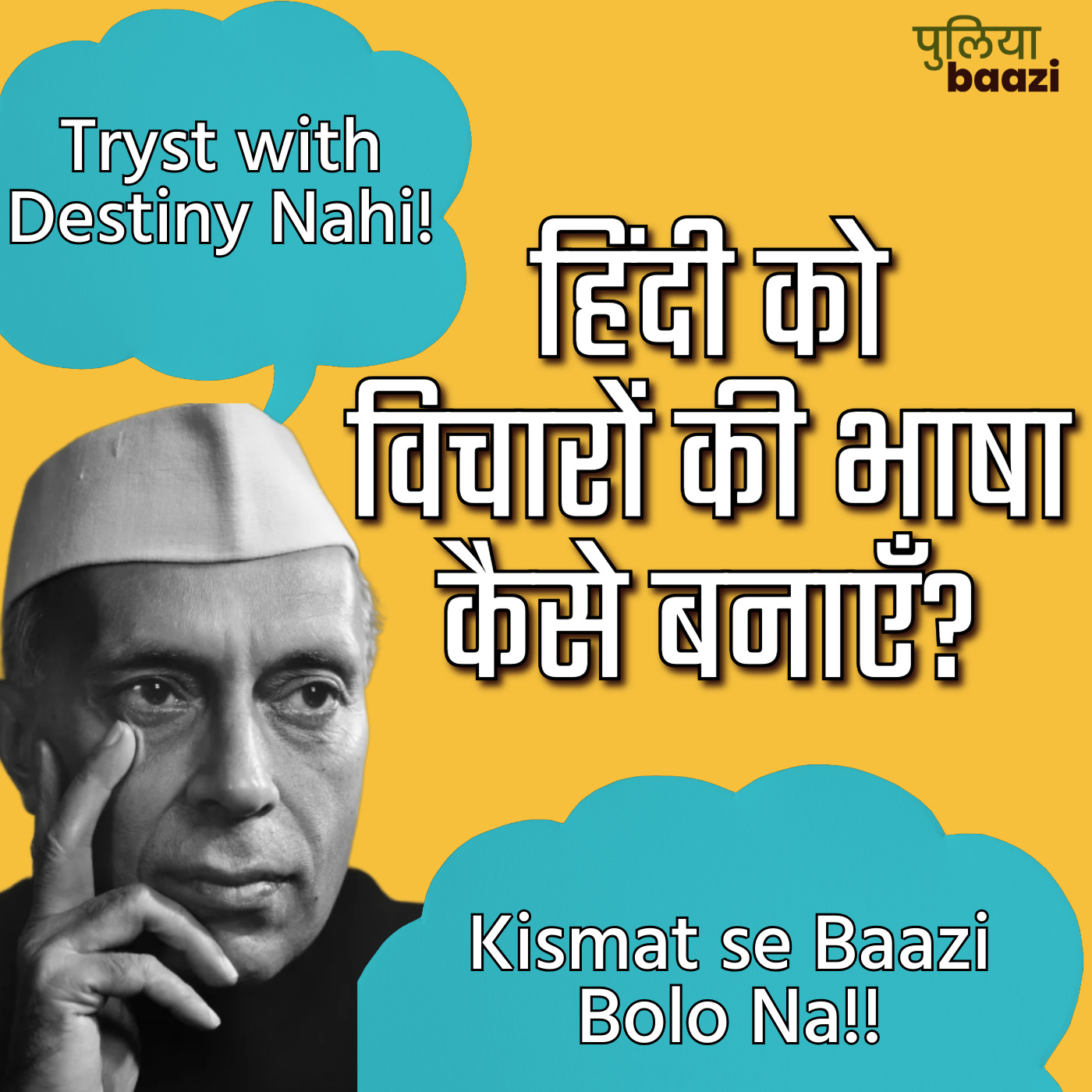
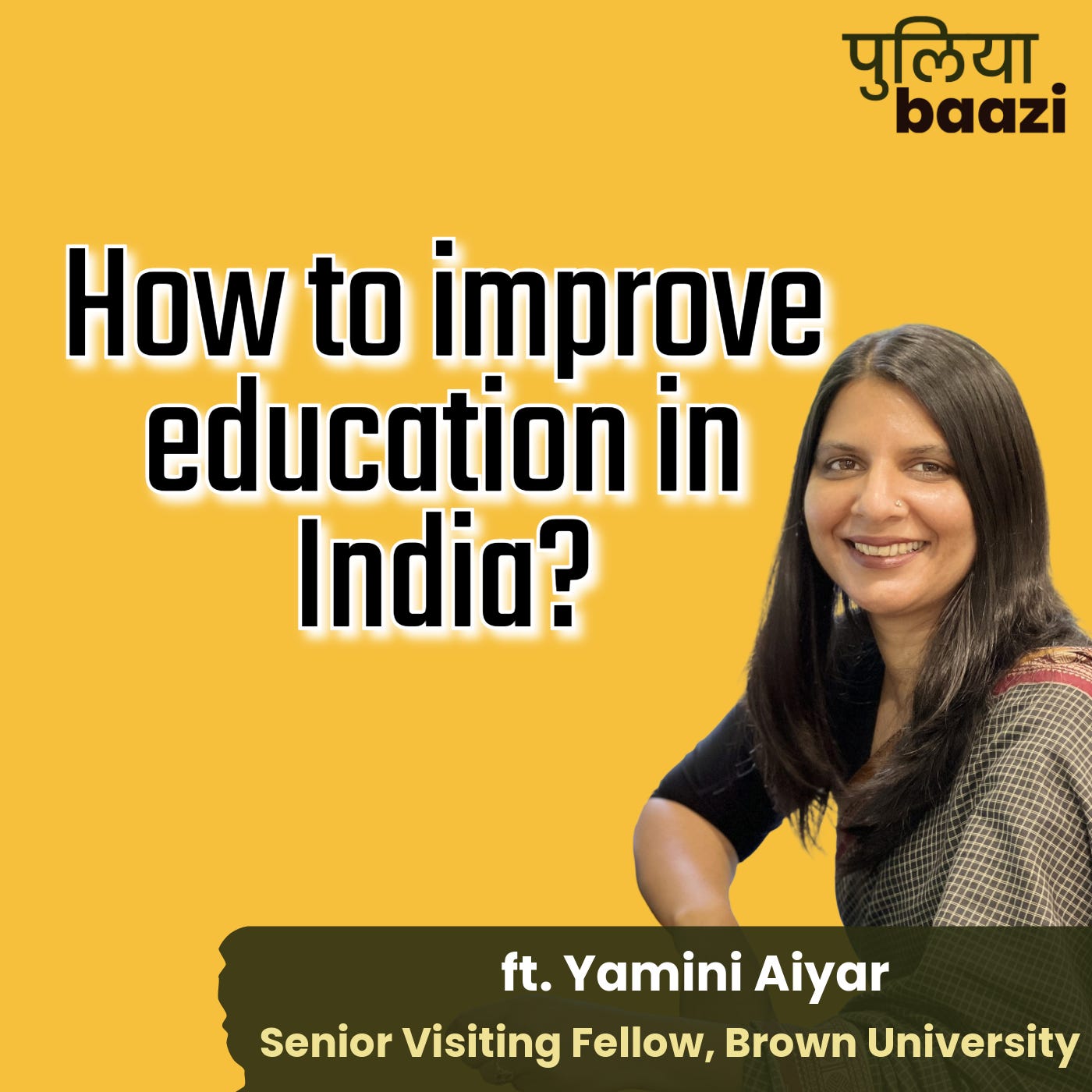
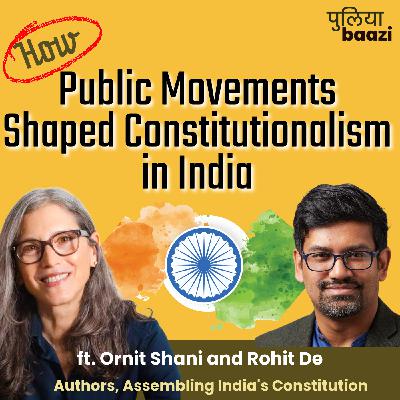
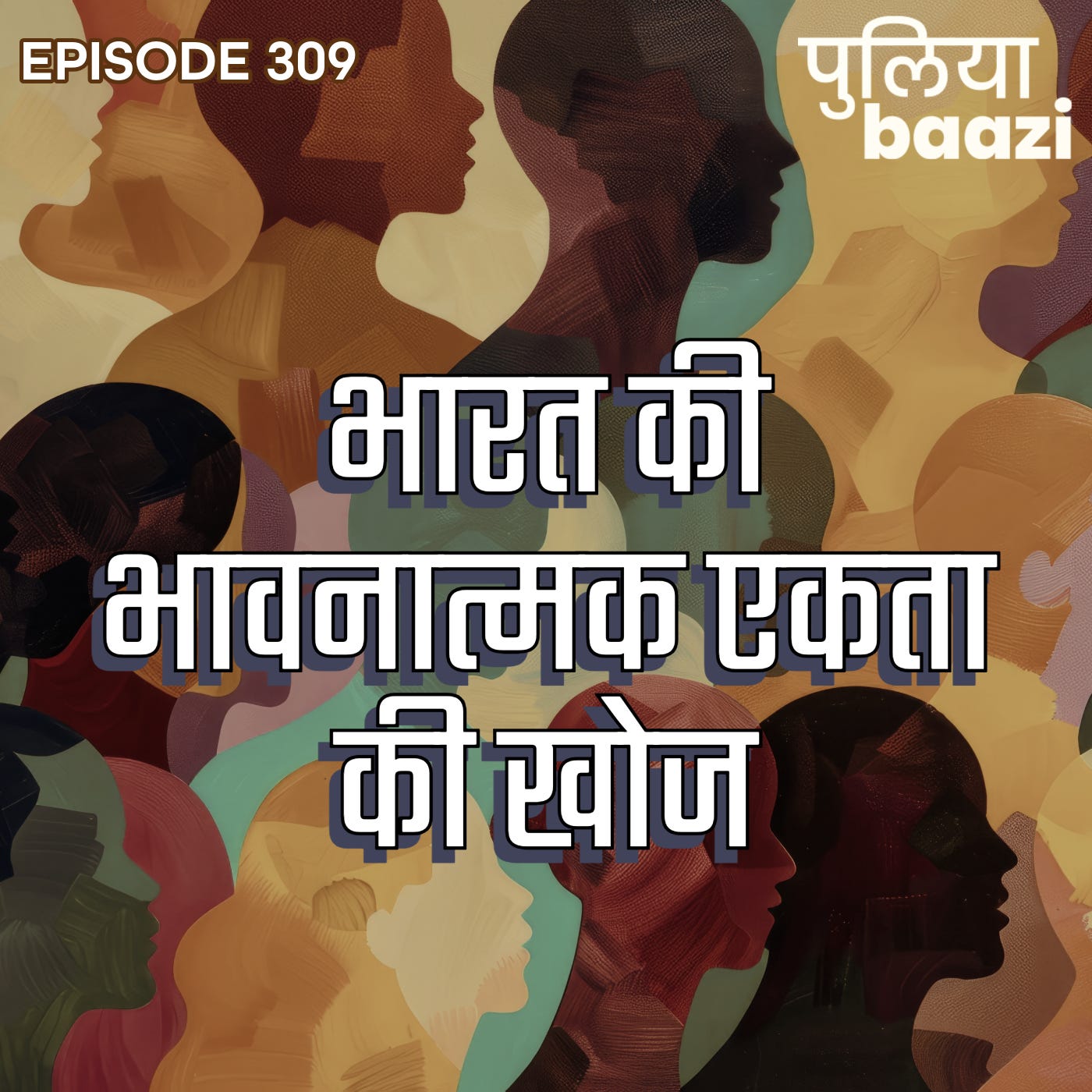
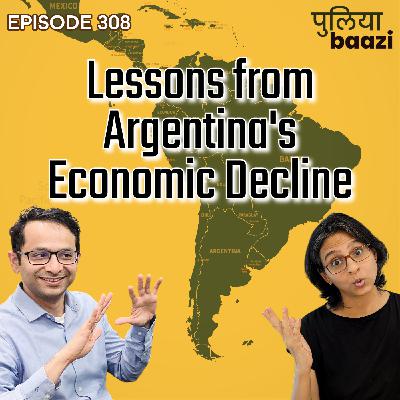
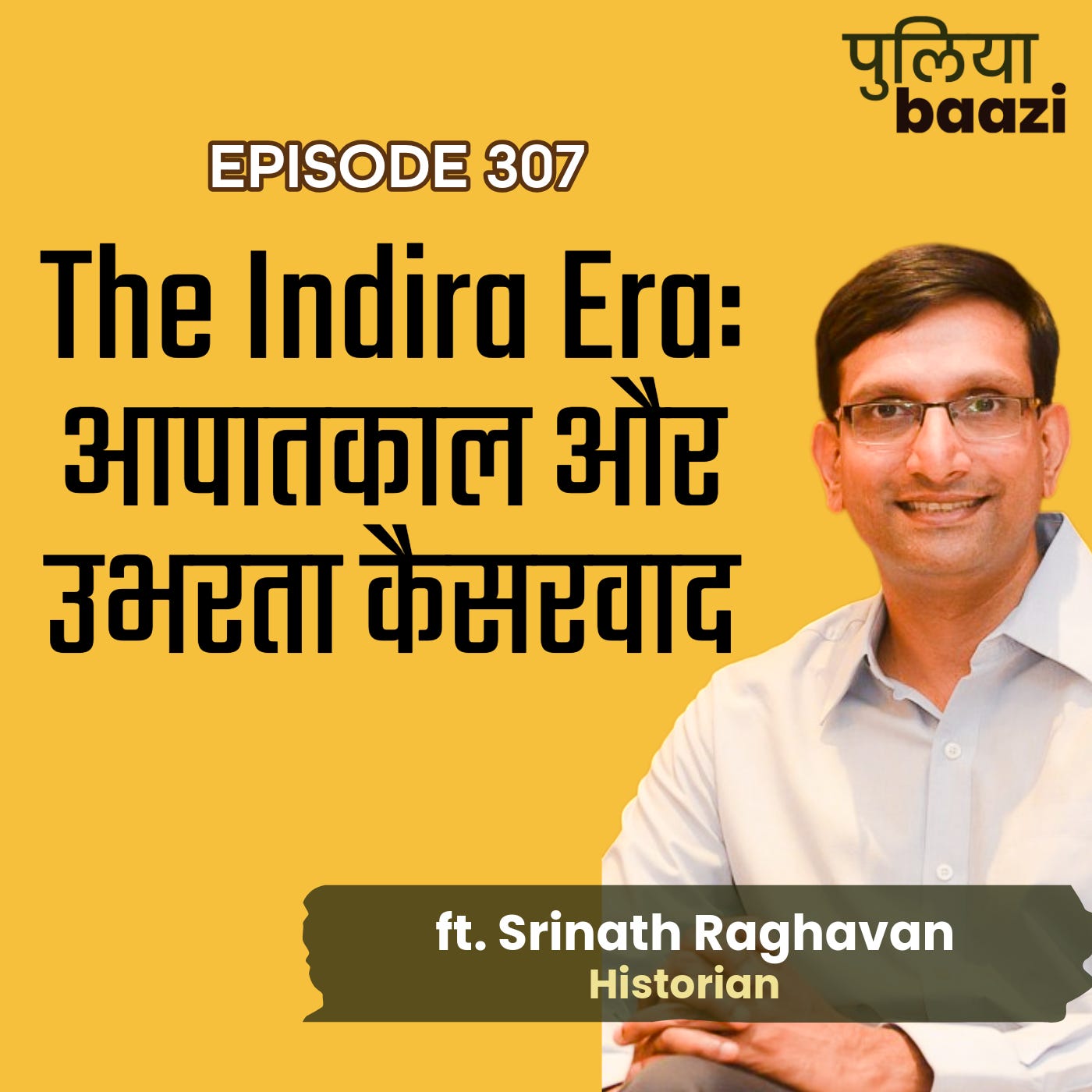
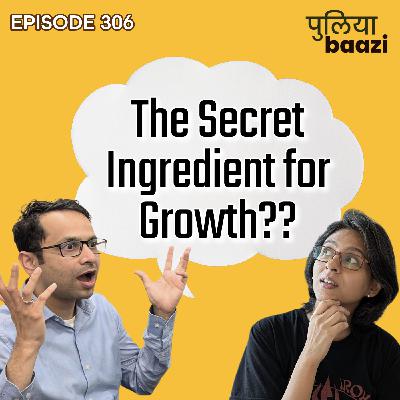

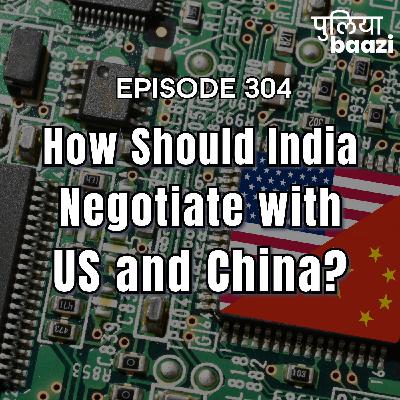
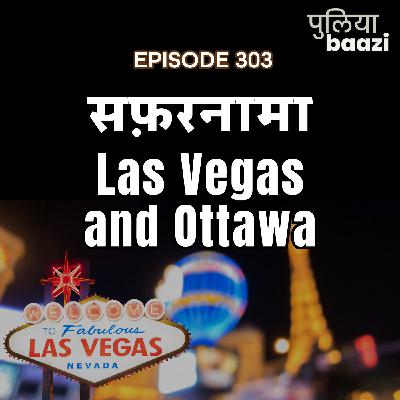
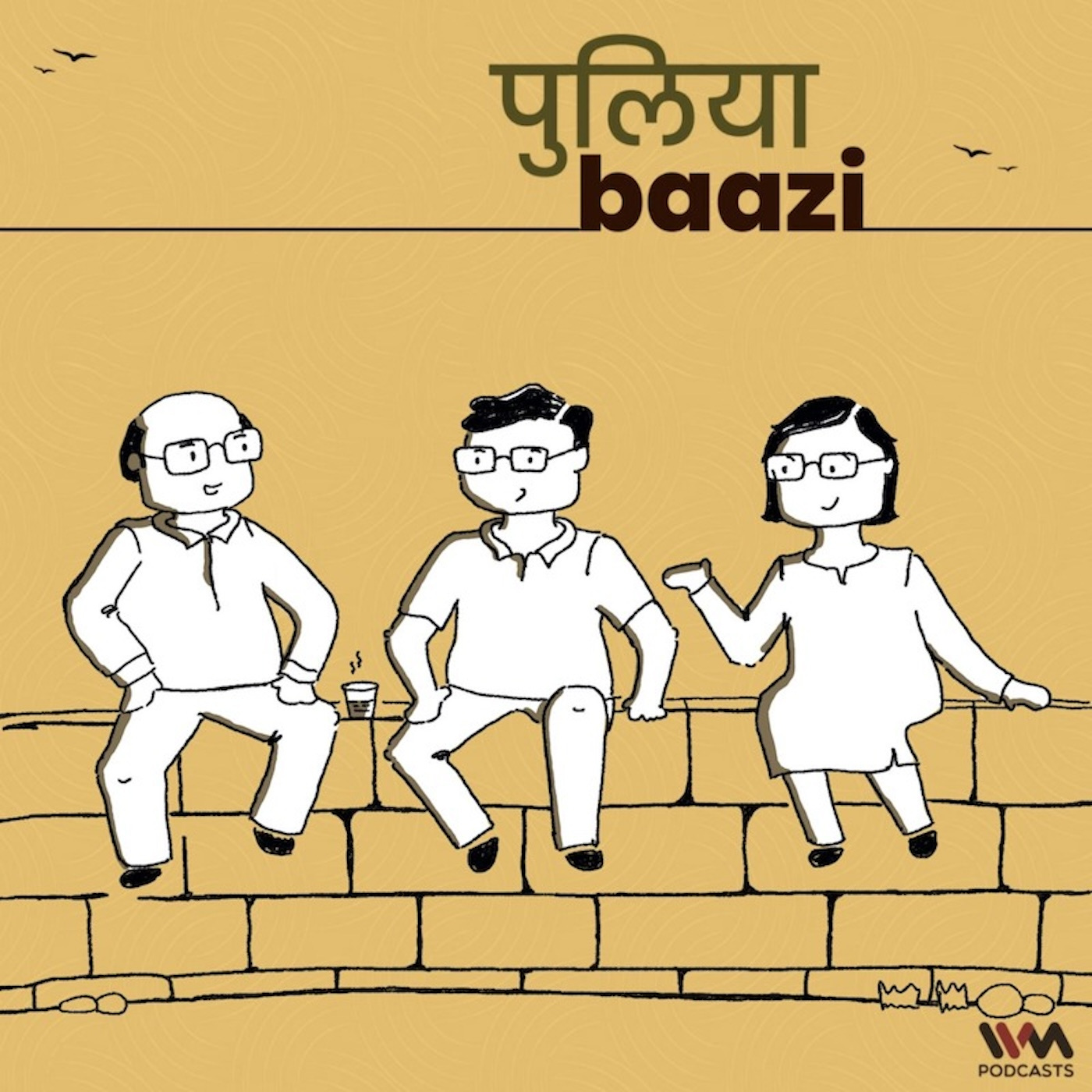
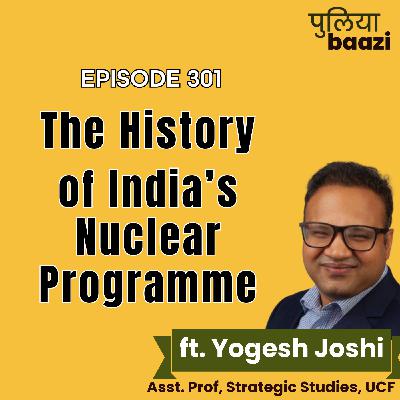
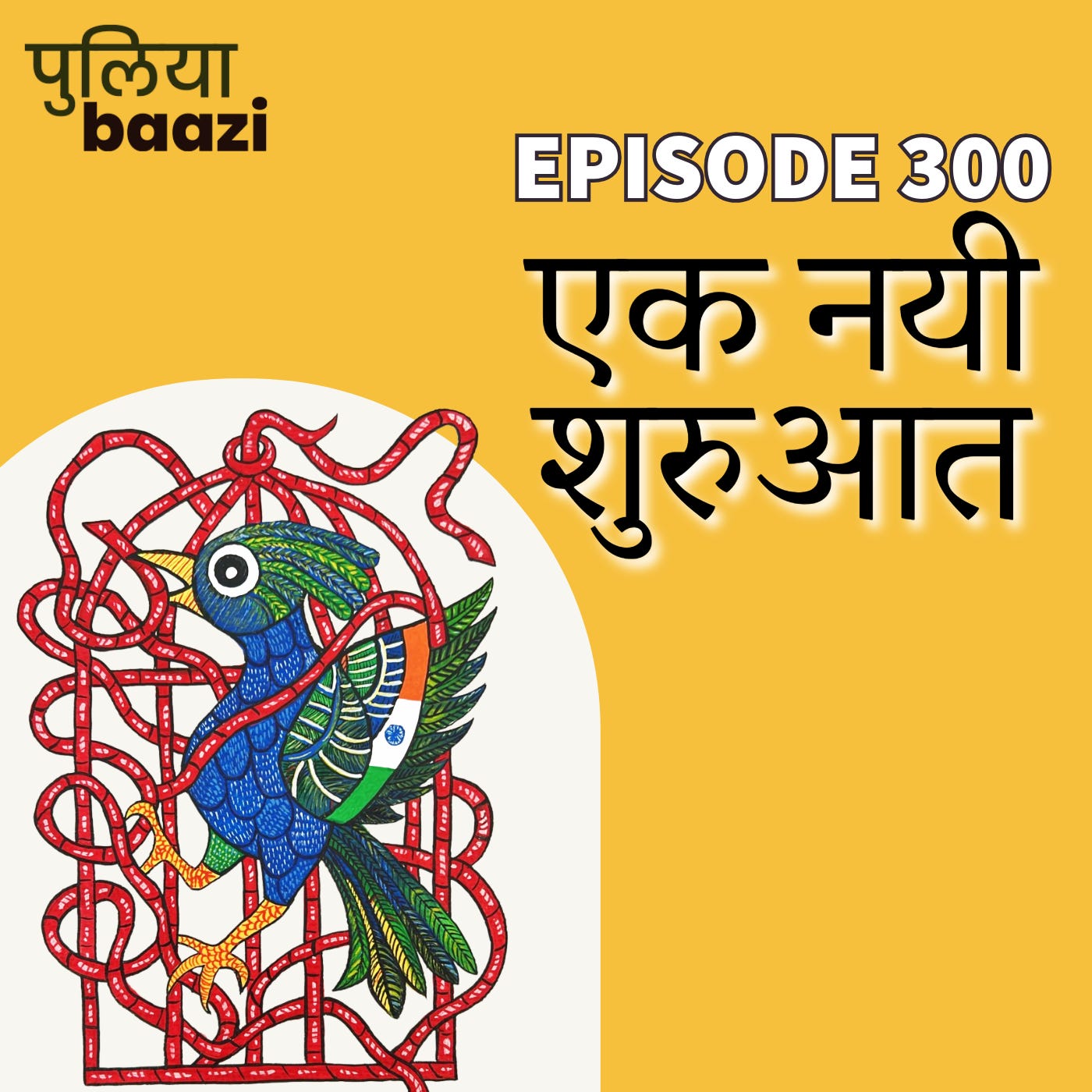
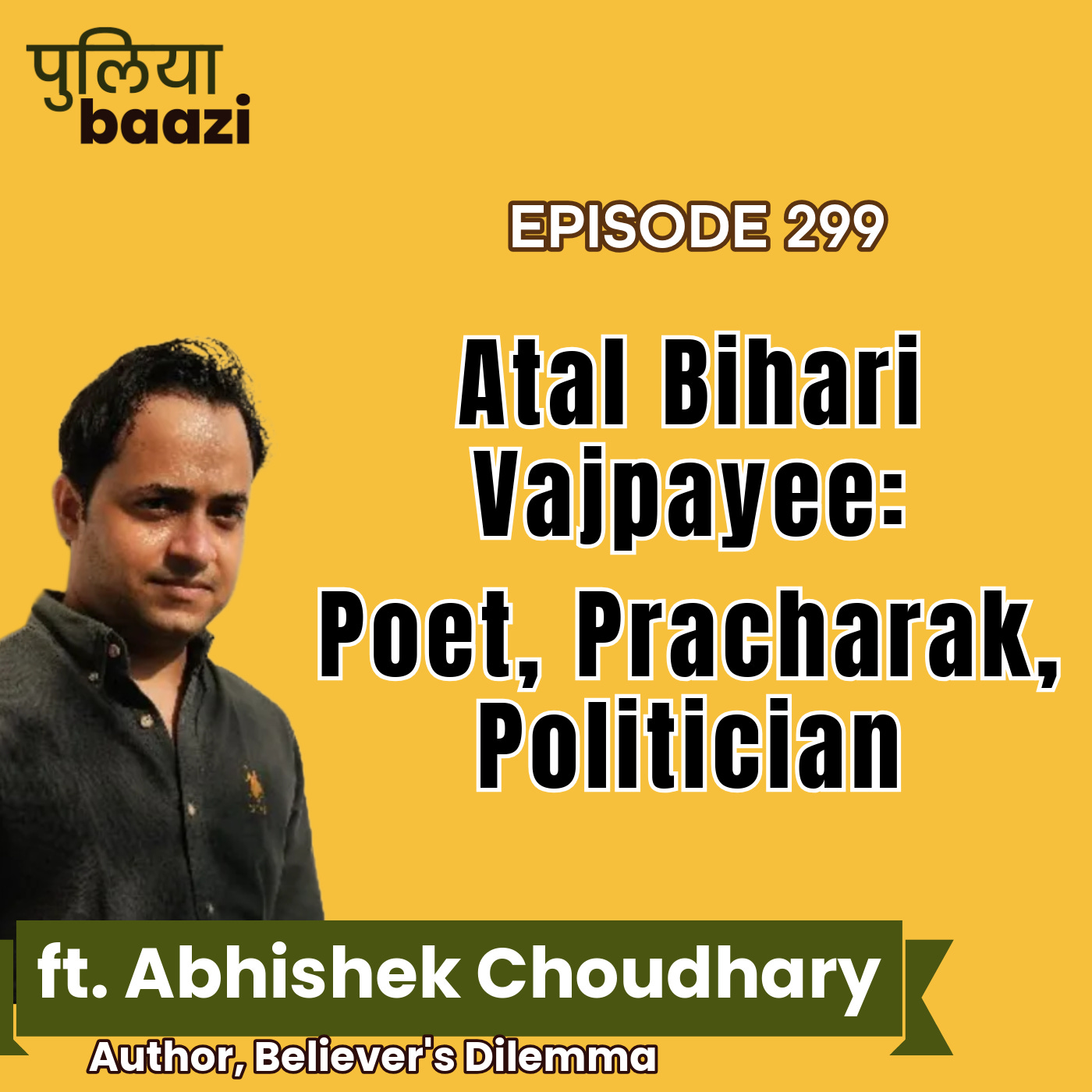
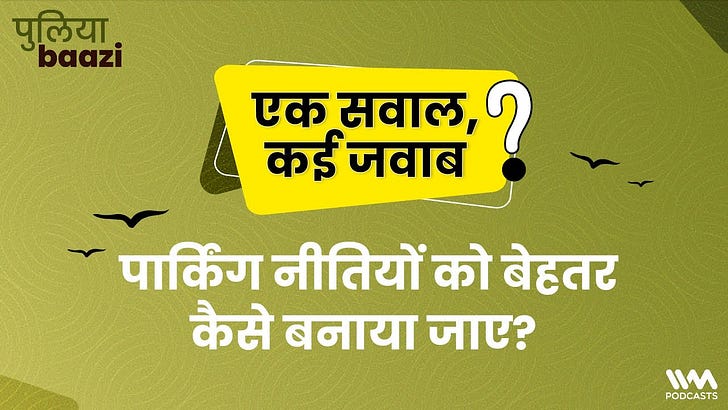
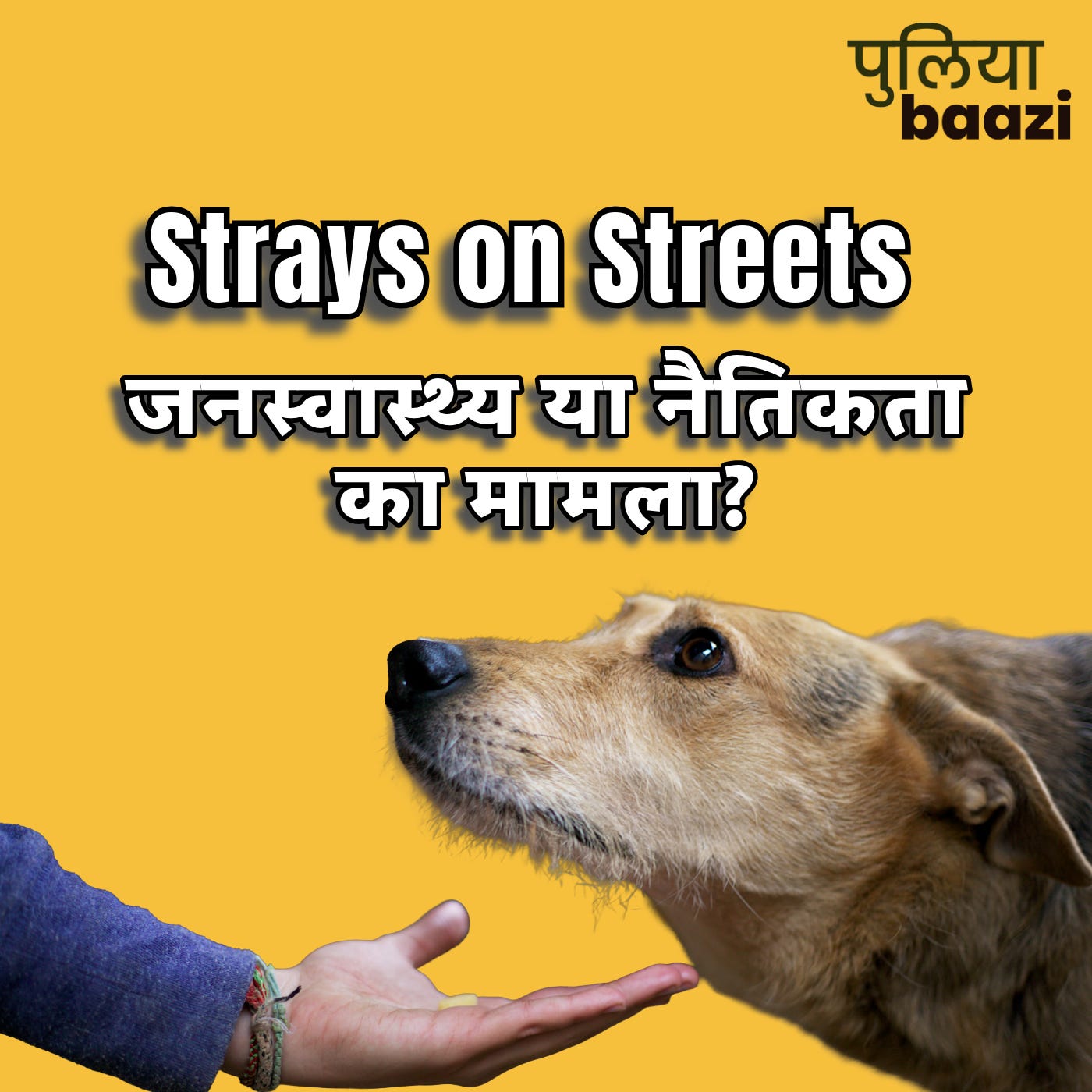
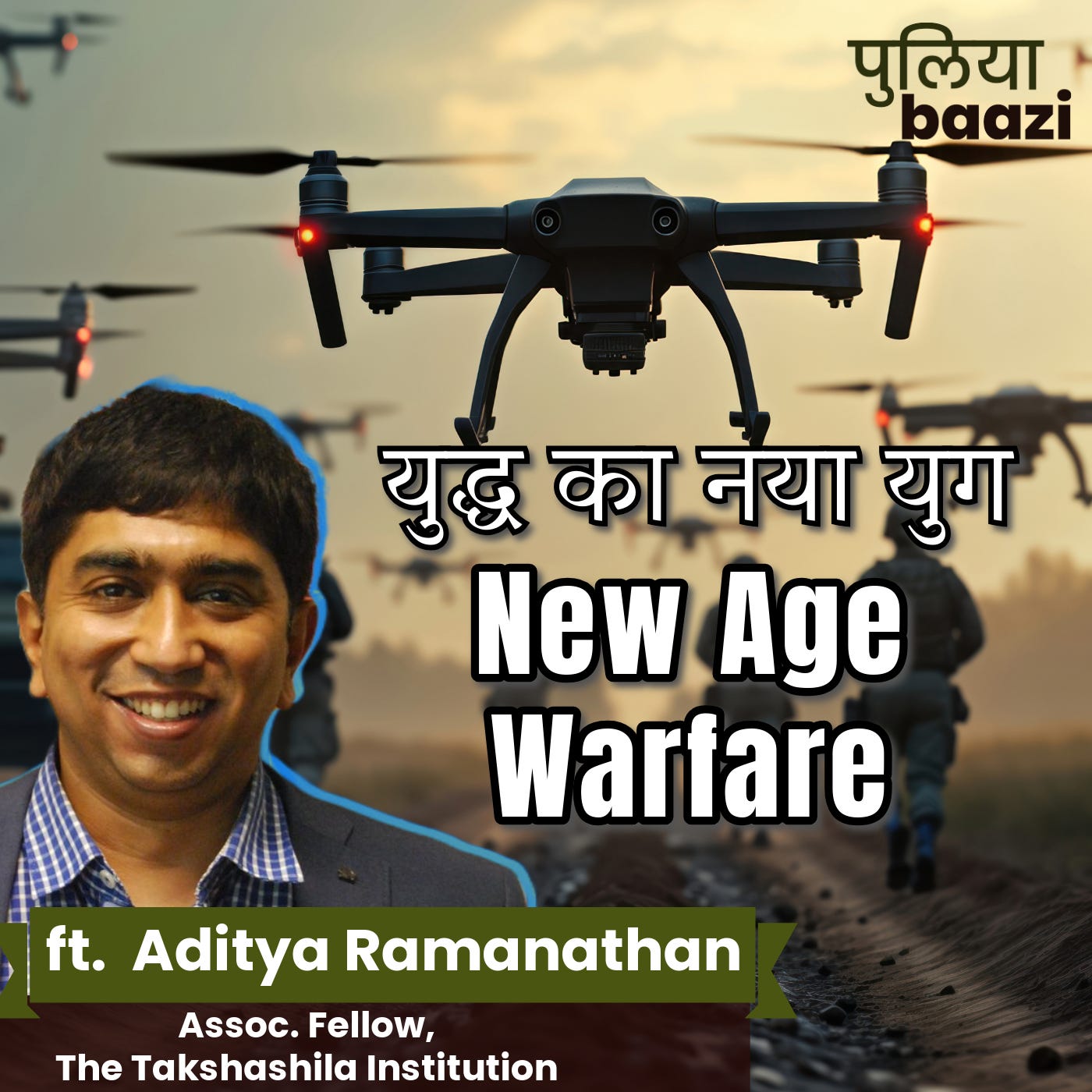
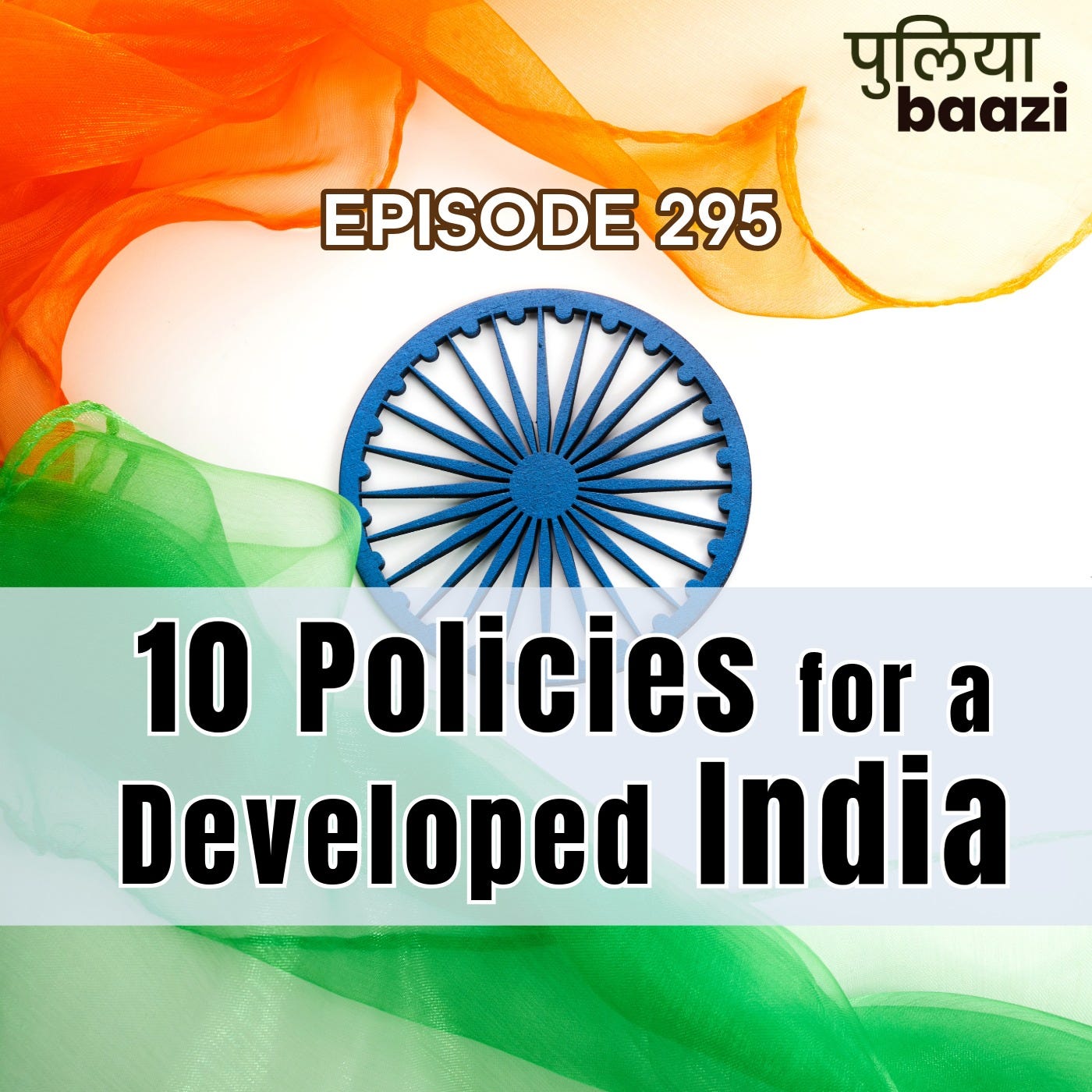
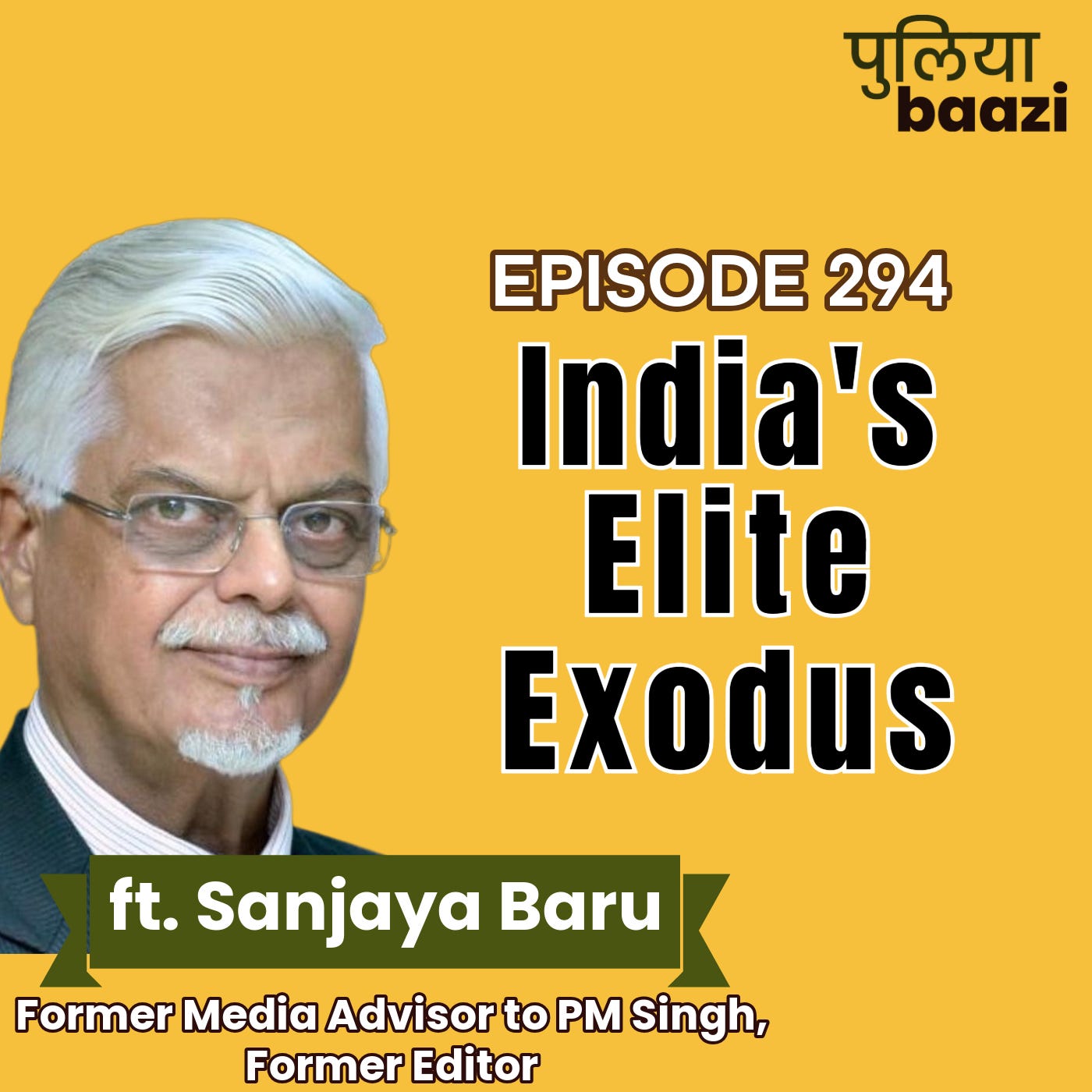




ChatGPT said: While the debate on sedition vs. freedom of expression highlights how digital voices navigate legal boundaries, it's equally important to be cautious in online spaces, especially with media apps. Tools like https://magistvapkdl.com/ offer flexible IPTV access but also raise concerns about safety and content legality. Just as speech must be protected yet responsible, digital content use also demands awareness and discretion.
मादरचोदो हिन्दुस्तान नहीं भारत बोलने की आदत डालो । तुम्हारे passport पर हिंदुस्तान नहीं लिखा होता ।
पहली बात जो भी दूसरा बंदा तुम्हारे podcast पे आता है उसकी हिंदी खराब ही होती है । इसका मतलब तुम लोग खराब हिंदी वाले को ही preference देते हो । और दूसरा अगर तुझे US में रहने का शौंक है तो भारत में क्या करने आया है गद्दार । जा वापिस चला जा, जा के गोरों के तलवे चाट ।
I’m eager to reveal this page. I have to thank you for ones time for this especially awesome read!! I unquestionably extremely enjoyed all aspects of it and I likewise have you spared to fav to take a gander at new data in your site. link: http://bit.ly/3KnOvyr
🔴💚CLICK HERE Full HD✅720p✅1080p✅4K💚WATCH💚ᗪOᗯᑎᒪOᗩᗪ LINK 👉https://co.fastmovies.org
i heard the adha episode but abhi tak belgaum suru se suru nahi hua... although always nice content and talks.
ये घटिया podcast करने के लिए china से पैसे लिए है क्या । लगता है तुम पे भी छापा मारना पड़ेगा ।
shit podcast.
हा हराम के पिल्ले तुम्हे तो इस सरकार की सारी नीतियां खराब ही लगती है ।
T
बकवास पॉडकास्ट, सुनने लायक नहीं है ।
बस Bos-D वालो हो गए शुरू ? अपना हर podcast gov की नीतियों की बुराई करने के लिए ही बनाते हो ? जब भी बकचोद करते हो गलियां ही खाते हो दोनो ।
अब ये दो खच्चर बताएंगे कि सरकार पैसे कहा से बचाए और कहा लगाए । चिल्लड से podcaster
सर चंद्रभान सर वाला एपिसोड भेजिए
हा गांडू तुम लोगो की तो सिर्फ यही duty है की social media पे सरकारों को गालियां देना । प्रधान मंत्री ने duty याद दिलाई तो पिछवाड़े में मिर्ची लग गई । तुम लोगो की सड़ी हुई सोच की वजह से ही भारत के तुम जैसे लोग गटरछाप कीड़े हो और isreal जैसा छोटा सा देश दुनिया की एक विकसित ताकत है ।
कांग्रेस ने अपने कुछ कुत्ते पाले हुए हैं जो पुलिया बाजी podcasts करते हैं ।
👍👍👍
इस एपिसोड से पहले भूजल सभ्यता वाला एपिसोड मेरा favourite tha। अब ये एपिसोड हो गया। खूब हंसा में आप लोगों की बातें सुनकर।
this was the moat informative and insightful show. विश्वनाथ जी को मेरा प्रणाम 🙏 फुल of Passion
मेने भी schooling तराई में की है। नैनीताल डिस्ट्रिक्ट में। तब ग्राउंड हमारा समतल नहीं था।बारिश के दिनों में क्रिकेट पिच में जब पानी भर जाता था, हम लोग खुरपी और फावड़ा लेकर ग्राउंड में कहीं और खोदकर पिच पर सुखी मिट्टी डालते थे। कभी कभी जहां खोदते थे वहां नीचे से पानी निकल आता था।